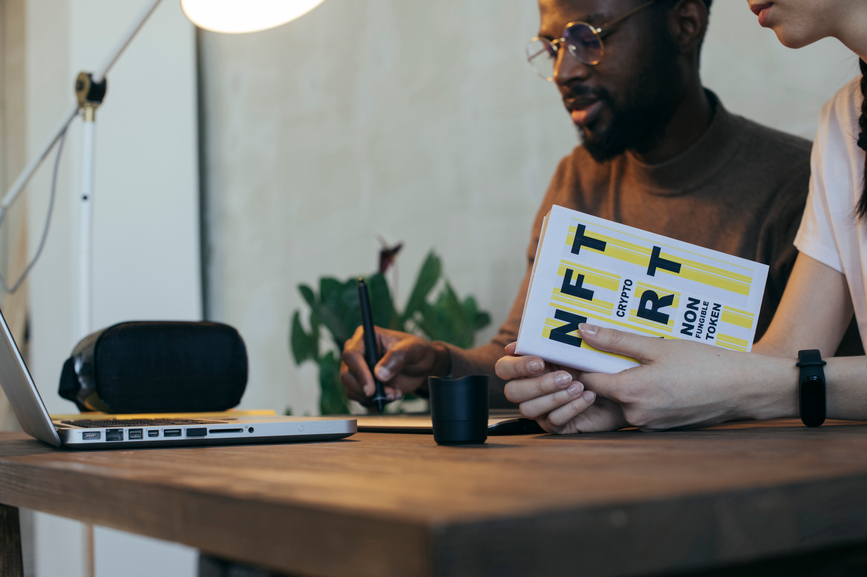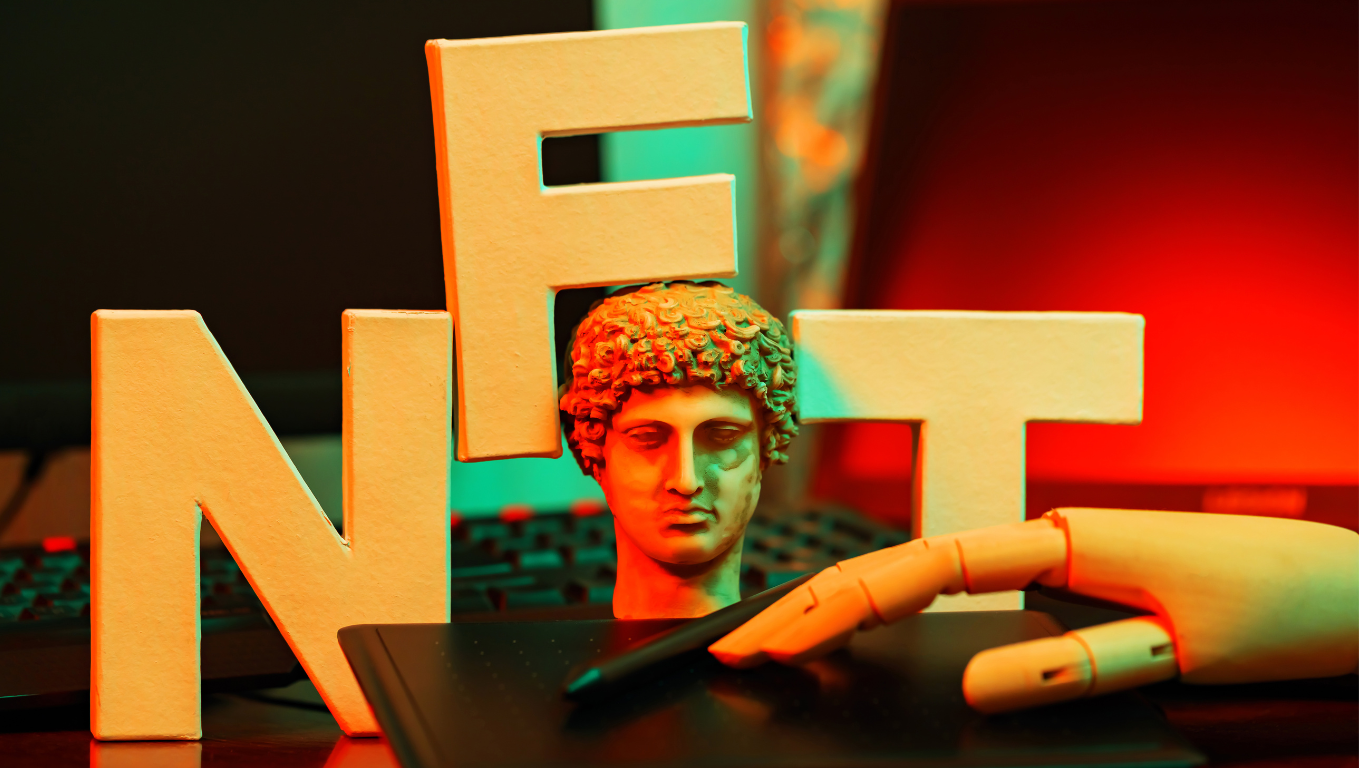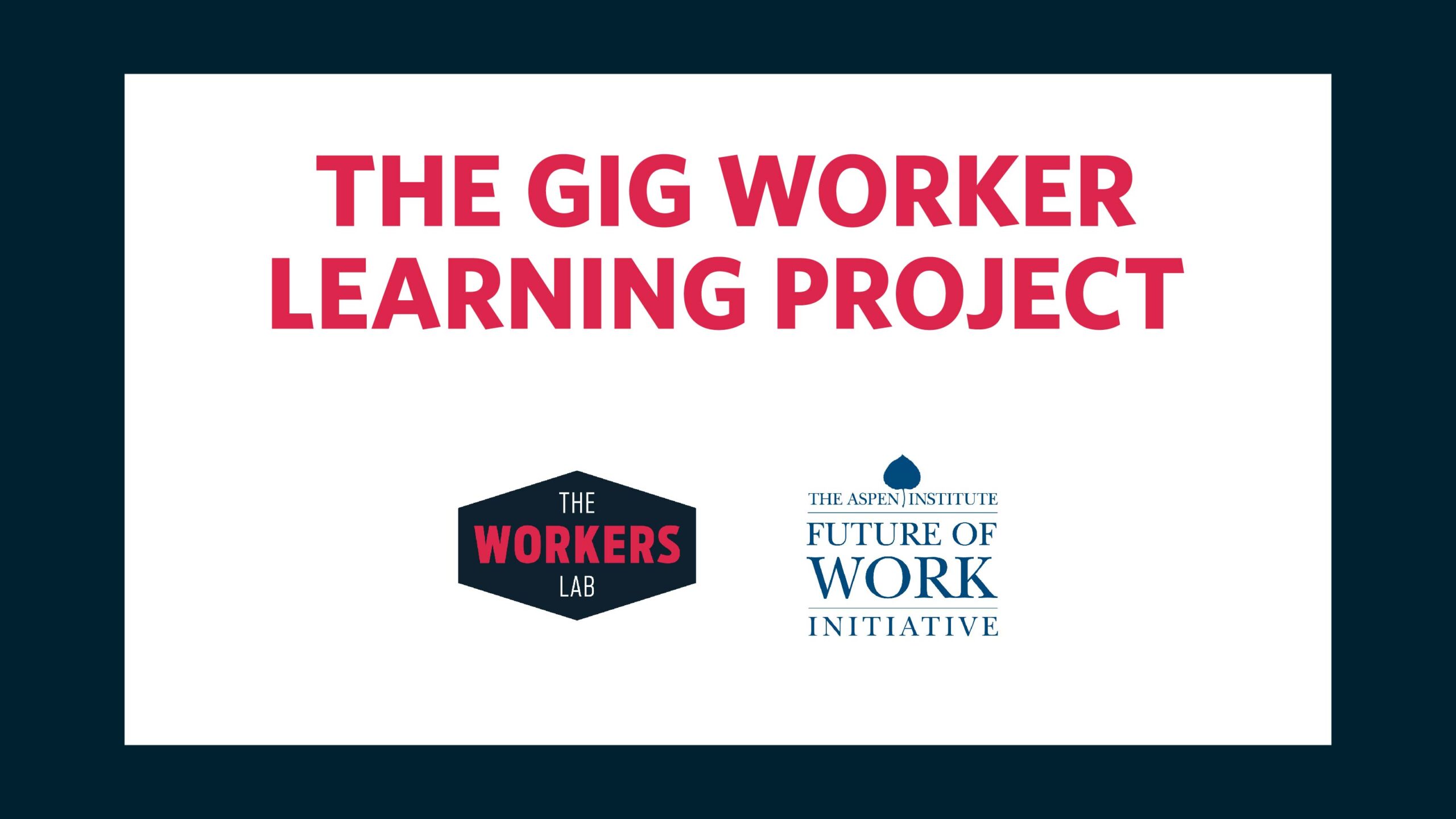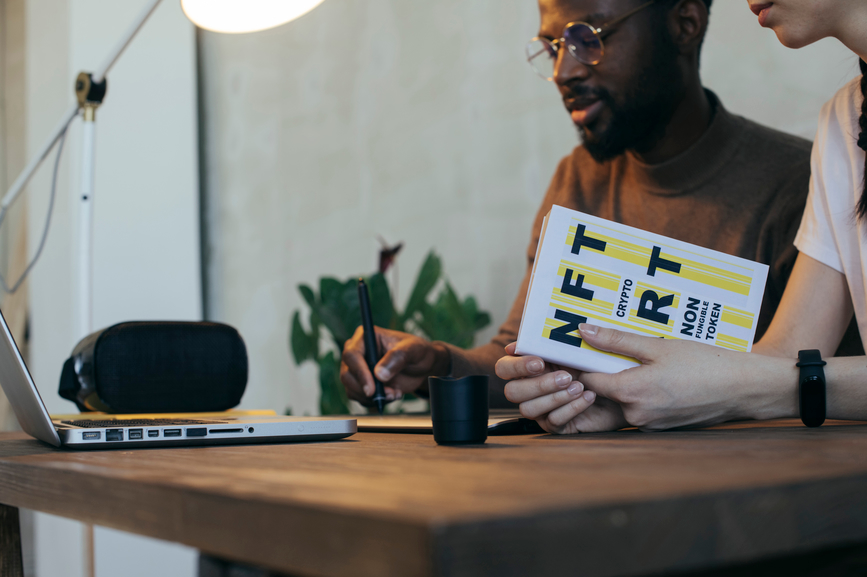NFTs, Smart Contracts, & DAOs
NFTs, Smart Contracts, & DAOs
A Resource for Creatives
A report to help creatives capture the opportunities of blockchain technologies, while protecting themselves from legal risk
When we started seeing many BIPOC artists moving into the blockchain space several years ago, we started building our own expertise in this area.
That’s why we commissioned Alex Glancy at Gundzik Gundzik Heeger LLP to author this report exploring the legal challenges artists face on the blockchain.
To support creatives as they engage with this new technology, this report seeks to provide information in the legal areas of copyright, business entities, securities, contracts, and trademark, as applied to these emerging tools.
Ultimately, we hope this report serves as a resource to help creatives capture the opportunities of blockchain technologies, while protecting themselves from the risks.
What do gig workers really want?
What do gig workers really want?
We're thrilled to support new participatory research to find out.
Althea Erickson
Althea Erickson is the Director of the Sol Center for Liberated Work, a program of the Center for Cultural Innovation. Previously, Althea was the Vice President of Global Government Affairs and Impact at Etsy, and Advocacy & Policy Director at Freelancers Union.
For several years now, the conversation about gig work and the future of work has been hampered by the lack of good data.
Current measurements of the gig workforce are notoriously inconclusive and contradictory. Existing studies rely on conflicting definitions and overlapping terms (e.g., separating out or collapsing freelancers, contract workers, independent workers, itinerant workers, gig workers, etc.) that result in findings so disparate, they undermine the data’s usefulness and credibility.
Existing research also fails to capture the full diversity of gig workers across sectors. So often, the conversation focuses on app-based workers, but fails to consider informal workers, farm workers, street vendors, arts workers, and any number of other categories of non-traditional work who ALSO lack the benefits and protections tied to full time employment.
Moreover, existing research fails to uncover what workers say they need and what solutions they want. Ultimately, such data is necessary, not only to anchor any new effort to deliver benefits and protections outside of employment, but to build the political power that gig workers need to win them.

That’s why we’re thrilled to announce Sol Center’s first grant, to support the Gig Worker Learning Project, a participatory research project by The Workers Lab and the Aspen Institute Future of Work Initiative, seeking to understand gig workers’ needs and the solutions that will impact them most. The first phase of the project, which took place over 2022, included early stakeholder outreach and a landscape scan of existing gig workers research. The second phase will rely on participatory research methodology to develop a foundational understanding of gig workers’ most pressing challenges and identify solutions that workers feel would impact them personally.
Participatory research methods differ from traditional ones by positioning research subjects as collaborators and owners of the research process and data. In this, the Gig Worker Learning Project doesn’t just start with excluded and marginalized workers; it puts them in the driver's seat of research design, data collection, dissemination, and data ownership. The team will also build a cross-sector community of leaders, researchers, and worker organizations committed to gig and contract worker-centered knowledge, who can amplify findings and collectively frame their work from the perspective of gig workers.
Finally, and perhaps most importantly, the project will build infrastructure for power building across worker groups through a Participatory Research Toolkit that equips gig worker organizations with tools to collect ongoing data on workers’ lives. This data will bolster each organization’s ability to advocate on behalf of its members with policymakers, supporting their efforts to build political power. It will also form the basis of a larger national dataset about gig work, owned by gig worker groups.
In this, the project will build the infrastructure to enable cross-sectoral collaboration around a shared agenda for gig work, one rooted not in the perspectives of powerful interest groups, but in the perspectives of workers themselves. To the extent that the project will help create more open space in the debate, it will also equip worker organizations to fill it.
We couldn’t be more excited to support this project. Learn more about the work here!
Advocating for artists on the blockchain
Advocating for artists on the blockchain
Althea Erickson
Althea Erickson is the Director of the Sol Center for Liberated Work, a program of the Center for Cultural Innovation. Previously, Althea was the Vice President of Global Government Affairs and Impact at Etsy, and Advocacy & Policy Director at Freelancers Union.
Artists’ economic security depends on their ability to own and control their intellectual property rights, but they often lack the means or bargaining power to protect those rights.
For example, musicians often forgo rights to their work when signing record deals, while freelance writers must often sign contracts that give publishers full rights to their work in all forms in perpetuity. Unlike in many other countries, US visual artists don’t have a means to collect resale royalties on their work, even as those pieces grow in value over time.
The blockchain offers exciting opportunities for artists to take more control over their work, and expands ways for them to earn income from that work. It allows for more direct connection between artists and their fans, circumventing traditional gatekeepers. Through smart contracts and the metadata associated with NFTs, artists can set and enforce the terms of their license agreements in their work, including enabling many to collect resale royalties for the first time.
Given the opportunities and lack of traditional gatekeepers, it’s not surprising that many Black and Brown artists and creatives moved quickly into the space. Black individuals have been at the forefront of participating, legitimizing, and shaping the development of blockchain-based financial markets, activities, community forums, and art. We follow the artists we serve where they go, which is why we started exploring and learning about the web3 space.

We quickly learned that while the opportunities are significant, so are the risks, especially when it comes to artists protecting themselves and their work. In particular, the platforms themselves have significant power to set and enforce terms, limiting the promise of true self-determination for creatives.
To truly capture the ownership opportunities the blockchain offers, artists moving into the space need tools and information to help them set and enforce their rights. That’s why we commissioned Alex Glancy at the law firm Gundzik Gundzik Heeger LLP to write a report on the legal issues artists face on the blockchain (report forthcoming).
Given our interest in the issue, we were excited to learn in late 2022 that the U.S. government had undertaken a study into the issues surrounding intellectual property and NFTs. Policymakers are exploring whether current intellectual property laws need to be updated or changed, given the new technology. The U.S. Senate Subcommittee on Intellectual Property requested that the US Copyright Office and US Patent and Trademark Office undertake a joint study exploring intellectual property issues and NFTs. As part of that study, the Offices requested written comments, as well as hosted several public roundtables on the topic.
We worked with other stakeholders from the arts community to collect feedback on the issues artists and creatives face in the NFT space, and collaborated with Alex to develop comments to the USPTO/USCO study. We also participated in one of the public roundtables the Copyright Office organized, advocating on behalf of the creatives CCI serves, especially those from marginalized communities. You can read our submission here, and watch the roundtable here.
In advocating for the arts workers and creatives we serve, we made four major points:
- Artists need better tools to understand and influence the ways NFT marketplace terms impact their intellectual property rights, including the ability to assess terms, determine licenses, as well as choose or change platforms
- There is significant legal uncertainty regarding the ways copyright law and contract law overlap on the blockchain, which creates copyright management and enforcement challenges for creators and inconsistencies in enforcement
- As is the case off the blockchain, small creators need education and technical assistance to help them protect and manage their intellectual property on the blockchain, in particular given the high barriers to informed entry in the market and the lack of trusted advisors, especially within marginalized communities
- While the blockchain offers ways small creators can support themselves via direct payments and resale royalties, we worry about their overdependence on too-few platforms that could potentially use their market power to strip artists of ownership of artwork, rights to reproduce, trademark, and other economic opportunities.
Yes, we’re excited about the opportunities blockchain technologies offer for arts workers to control and derive economic benefits from their work. However, lack of information, tools, support and means to exert collective power may undermine the potential of these technologies to help creators – especially creators from marginalized communities – achieve greater self-determination.
Contributing to this public study was just the first step we’re taking to advocate for artists' ownership rights in this space. In the days to come, we’ll be publishing the report drafted by Alex Glancy on legal issues artists face on the blockchain, sharing artists' experiences and challenges with lawmakers, and continuing to collaborate with our peers to uplift their voices in the public debate.
Have a story to share about your experience using blockchain technologies? We’d love to hear it here!


